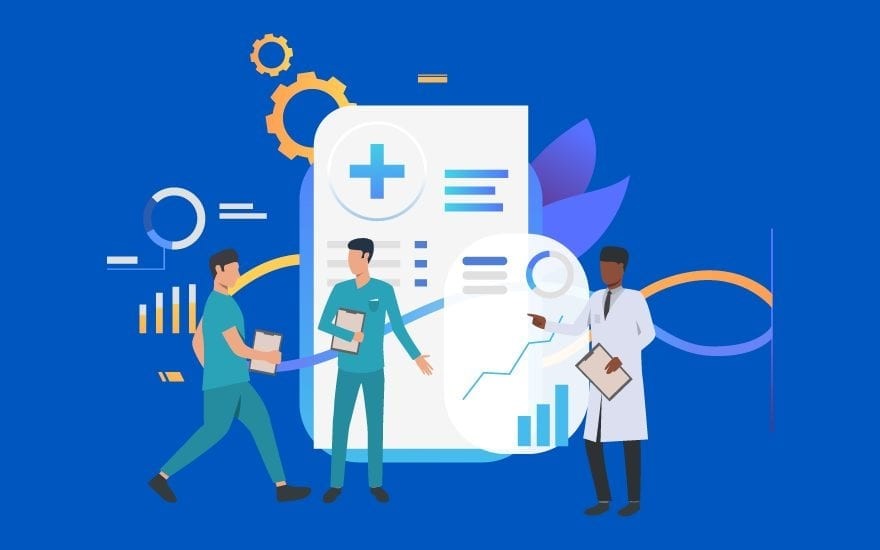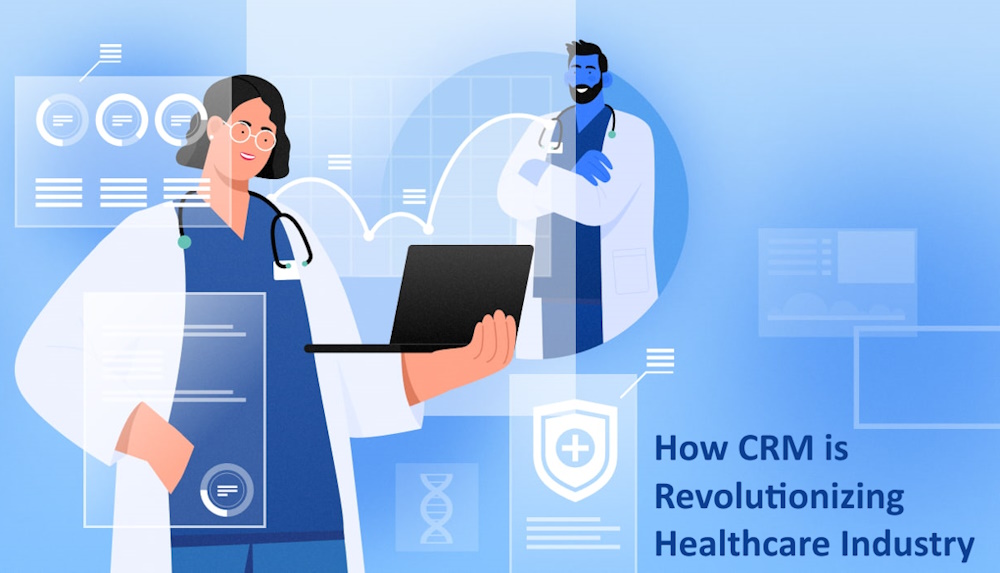Customer Relationship Management (CRM) is a widely used strategy in various industries for managing and improving relationships with clients. In the context of healthcare, CRM takes a patient-centric approach, focusing on enhancing the patient’s journey from initial contact to post-treatment follow-ups. The application of CRM in healthcare goes beyond just scheduling appointments and billing; it aids in maintaining comprehensive patient histories, managing patient feedback, tailoring individual care plans, and promoting health services. CRM is, therefore, a cornerstone in establishing a robust and efficient patient management system within healthcare organizations.

Contents
The Impact of CRM on Patient Care
The introduction of CRM in the healthcare sector has paved the way for improved patient care. By leveraging CRM, healthcare providers can obtain a 360-degree view of patient profiles, including their medical history, preferences, and feedback. This empowers providers to tailor their care to each patient’s unique needs, thereby enhancing patient satisfaction and outcomes. For instance, Cleveland Clinic, a renowned healthcare institution, utilized CRM to improve its patient experience, resulting in increased patient satisfaction scores.
- Improved Communication: CRM systems facilitate streamlined communication between patients and healthcare providers, leading to better understanding and improved care delivery.
- Enhanced Patient Experience: By providing personalized care solutions based on patient history and preferences, CRM contributes to elevated patient satisfaction levels.
- Efficient Workflow Management: CRM aids in effectively scheduling appointments, managing patient records, and tracking treatment plans, resulting in improved operational efficiency.
- Effective Marketing: CRM enables healthcare facilities to tailor their marketing efforts based on the insights gained from patient data, leading to more successful campaigns.
- Data Security: With robust security measures, CRM systems ensure the confidentiality and integrity of sensitive patient data.
CRM and Operational Efficiency
CRM is also a catalyst for improving operational efficiency within healthcare facilities. It streamlines administrative tasks such as appointment scheduling, patient follow-up, and billing, freeing up valuable time for healthcare professionals to focus on patient care. Moreover, CRM’s analytics capabilities deliver insights that help in anticipating patient needs and managing resources effectively, thereby reducing operational costs.
- Integration with Other Systems: CRM can be integrated with other healthcare systems like Electronic Health Records (EHRs) and Practice Management Systems (PMS), providing a unified platform for seamless data exchange.
- Patient Retention: With the ability to track patient behavior and engagement, CRM helps in identifying at-risk patients and implementing measures to improve patient retention.
- Automated Reminders: CRM systems can automate the process of sending appointment reminders to patients, reducing no-show rates and improving patient adherence to treatment plans.
- Predictive Analytics: CRM’s predictive analytics capabilities can help healthcare providers anticipate future patient needs and trends, guiding strategic decision-making.
- Regulatory Compliance: CRM systems with robust security features can aid healthcare providers in complying with data privacy regulations, protecting patient information and reducing risk.
The Role of CRM in Data Management and Decision-Making
Healthcare organizations generate vast amounts of data daily. CRM plays a pivotal role in managing this data, providing a centralized platform where all patient-related information is stored, updated, and accessed. The data analysis capabilities of CRM provide actionable insights that aid healthcare leaders in making informed strategic decisions related to patient care, resource allocation, and service development.
- Improved Communication: CRM systems streamline communication within healthcare organizations by centralizing relevant information. This allows for an immediate exchange of information, ensuring that everyone is on the same page regarding patient care.
- Personalized Care: CRM provides insights into patient behaviors and preferences, enabling healthcare professionals to personalize care plans and engage more effectively with patients.
- Efficiency in Operations: Through automation of various tasks such as appointment scheduling and reminders, CRM tools reduce manual labor, allowing healthcare staff to focus on more critical aspects of patient care.
- Marketing Optimization: CRM systems can track the effectiveness of marketing campaigns, helping healthcare organizations to allocate their marketing resources more strategically.
- Enhanced Patient Experience: By ensuring timely follow-ups and personalized interactions, CRM fosters a better patient experience, which ultimately leads to higher patient satisfaction ratings.
Challenges and Solutions
Despite the numerous benefits, the implementation of CRM in healthcare does pose some challenges, such as data security concerns, integration issues with existing systems, and resistance from staff. However, these can be mitigated with robust data security testing measures, comprehensive training programs for staff, and choosing a CRM system that is compatible with existing healthcare IT infrastructure.
- Regulatory Compliance: A well-implemented CRM system can assist healthcare organizations in adhering to regulatory requirements. By consolidating patient information in a single system, it can aid in maintaining accurate records, ensuring accountability, and facilitating audit trails.
- Cost-Effective: CRM systems help to eliminate redundant tasks and streamline operations, resulting in significant cost savings over time. They also provide valuable data that can inform strategic decisions, potentially leading to improved financial performance.
- Improved Collaboration: With a CRM system in place, collaboration between different departments within a healthcare organization can be greatly enhanced. Everyone has access to the same information, which can improve coordination of care and strategic planning.
- Patient Retention: By improving the overall patient experience, CRM systems can help to increase patient loyalty and retention. Satisfied patients are more likely to return for future care and to recommend the healthcare provider to others.
- Data-Driven Decisions: CRM systems provide a wealth of data that can be analyzed for insights. This can support more informed, data-driven decision-making, helping healthcare organizations to improve outcomes, identify growth opportunities, and better meet the needs of their patients.
Future of CRM in Healthcare
The future of CRM in healthcare is promising, with emerging trends such as artificial intelligence (AI) and predictive analytics set to take CRM capabilities to a new level. These advancements will enable healthcare providers to predict patient behavior, customize care plans, and automate routine tasks, further revolutionizing patient care and operational efficiency.
- AI-Driven Diagnosis: Artificial intelligence integrated with CRM systems can help in analyzing patient symptoms more accurately and suggesting possible diagnoses, thus aiding healthcare professionals in their decision-making process.
- Predictive Patient Analytics: CRM systems equipped with predictive analytics can forecast patient behavior and health risks, allowing healthcare providers to proactively manage patient health and mitigate potential health issues.
- Personalized Healthcare Experiences: By leveraging machine learning algorithms, CRM systems can tailor interaction with each patient based on their health history, preferences, and behavior, thereby enhancing the patient experience.
- Automation of Routine Tasks: The integration of AI into CRM solutions can automate routine tasks, such as scheduling appointments, sending reminders, and processing patient data, freeing healthcare professionals to focus more on patient care.
Conclusion
CRM for Healthcare is indeed a key player in revolutionizing the industry. It enhances the quality of patient care and streamlines the efficiency of operations, playing an instrumental role in facilitating data-informed decision-making. As healthcare providers, it’s crucial to harness the capabilities of CRM for Healthcare to stay ahead in this competitive landscape and cater to the changing needs of patients effectively. With the advent and progression of technology, the fusion of AI with CRM is bound to drive further innovation, transforming the realm of patient care for the better. Ready to elevate your healthcare organization with CRM for Healthcare? Get in touch with us today to discover more!




